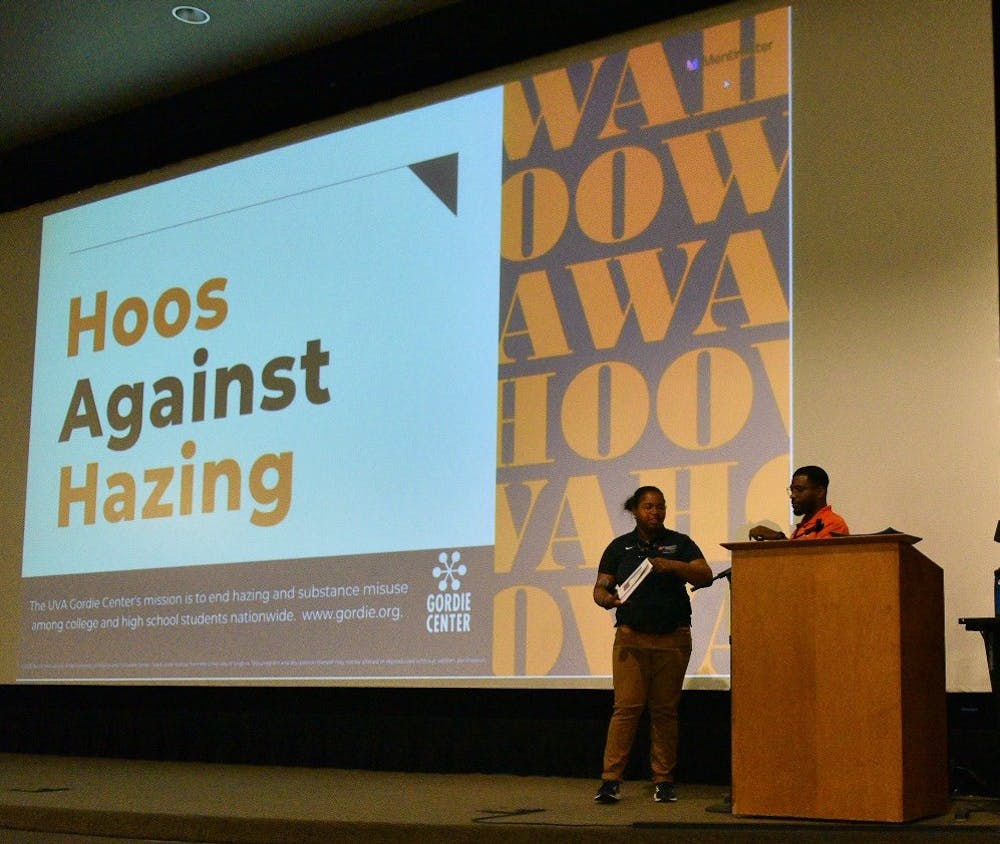Adam Oakes was pledging Delta Chi at Virginia Commonwealth University in February 2021 when he tragically died after his fraternity brothers hazed him to the point of alcohol poisoning. The horrific incident led to 11 members of the fraternity being arrested for hazing-related crimes. In the wake of his death, the Virginia General Assembly passed Adam’s Law in January, which mandates anti-hazing training for all members of organizations that required new members to go through a probationary or pledge period. As a consequence of this legislation, the University has instituted its own hazing prevention seminars titled “Hoos Against Hazing.”
Having sat in one of these anti-hazing training sessions, I can tell you the seminars are pointless — the University very clearly misses the mark. I learned nothing new and left frustrated at the waste of my time, and predict that no hazing practices will be combated by the training. It’s the same basic information over and over — don’t force people to drink. Don’t do anything that will cause mental or physical harm. Don’t force people into uncomfortable situations for the sake of participation in your organization. These are important messages, but they’ve been drilled in so much that they become meaningless phrases rather than rules. When combined with a lack of true enforcement, they become empty statements. Administration has made the sessions interactive, adding an online component where students answer questions on their phones and an in activity during which students rate the harmfulness of various situations.
For the most part, the result of these activities is not understanding, but laughter. For the most heinous examples of hazing, the room would laughingly say they were harmless behaviors. When questions were asked, people would answer with random words — or, my personal favorite, the simple phrase “hazing is bad.” Hazing is no joking matter, but the latter response is a commentary on the lack of knowledge actually gained through these sessions. We are taught that hazing is bad — an obvious and redundant fact that does nothing to actually limit the behavior. Hazing continues because people are so entrenched in a system of hazing and refuse to acknowledge it, so simply stating that it is bad does nothing.
Hazing undoubtedly goes on at the University. Last spring, the University Judiciary Committee released a report revealing that it sanctioned one Contracted Independent Organization for hazing. Additionally, two fraternities were terminated directly by the University due to “severe hazing behavior.” Using UJC as a resource, the University must focus on the organizations which are the biggest culprits. Per these reports, that means Greek chapters — but more specifically, those chapters overseen by the Inter-Fraternity Council. Hazing is the norm for many fraternities. While I support educating students on hazing prevention, administration blandly telling students to stop hazing isn’t enough. How many Greek life chapter members who have taken an oath to their organization are going to be swayed by a simple “don’t do that” from the University?
To actually combat hazing, the University should pay more attention to chapters within the IFC and their hazing behaviors. They should do routine check-ins and afford fraternities the same level of scrutiny as other organizations. For example, Inter-Sorority Council chapters are so scrutinized that they are sanctioned for the presence of alcohol at their social events, whereas fraternities have free reign to serve alcohol. If fraternities are found to have committed hazing activities, not only should they face legal consequences, but they should also be prohibited from gathering in any form whatsoever under any name. Increased accountability is necessary — this is quite literally the difference between life and death. While this investigative action should start with the most likely perpetrators, it shouldn’t be limited to chapters within the IFC. It should extend to all organizations, including sports teams, academic and pre-professional organizations, and even special status organizations as well.
At the moment, it seems to me that the University is putting in the bare minimum amount of effort to comply with new legal requirements. They are simply trying to cover themselves so they can say they took action after the passage of Adam’s Law. Meanwhile, they waste students’ time with bland and empty declarations of protection and neglect their responsibility to actually protect students. The reality is that these training sessions will do nothing to combat hazing, aside from making organizations more cautious and ensuring their hazing practices are even more covert. If the Hoos really are against hazing, they must promote accountability and provide real, material consequences for perpetrators.
Hailey Robbins is an Opinion Columnist who writes about student self-governance for The Cavalier Daily. She can be reached at opinion@cavalierdaily.com.
The opinions expressed in this column are not necessarily those of The Cavalier Daily. Columns represent the views of the authors alone.
Correction: This article has been amended to reflect the correct amount of bodies that have been sanctioned for hazing at the University.





